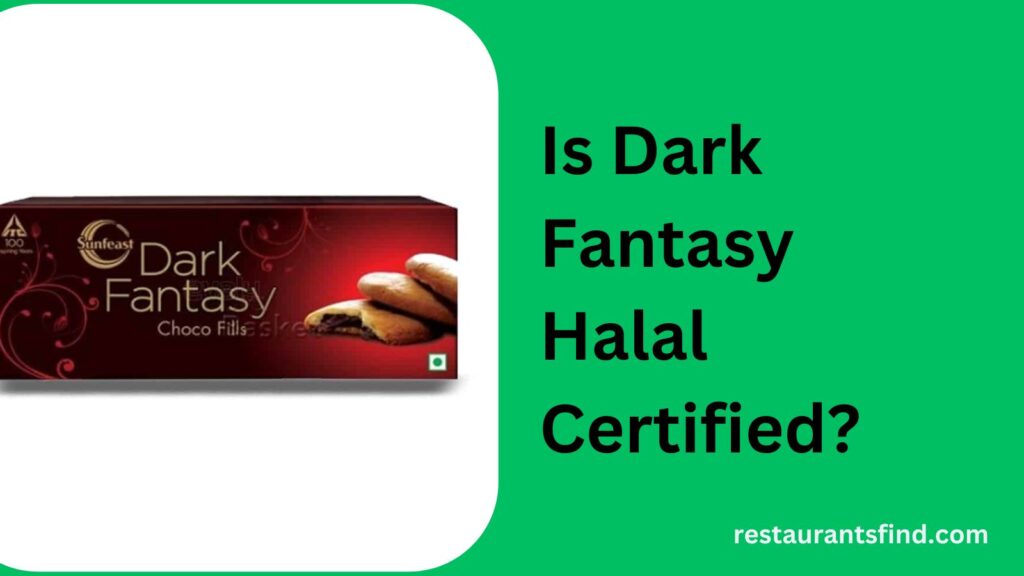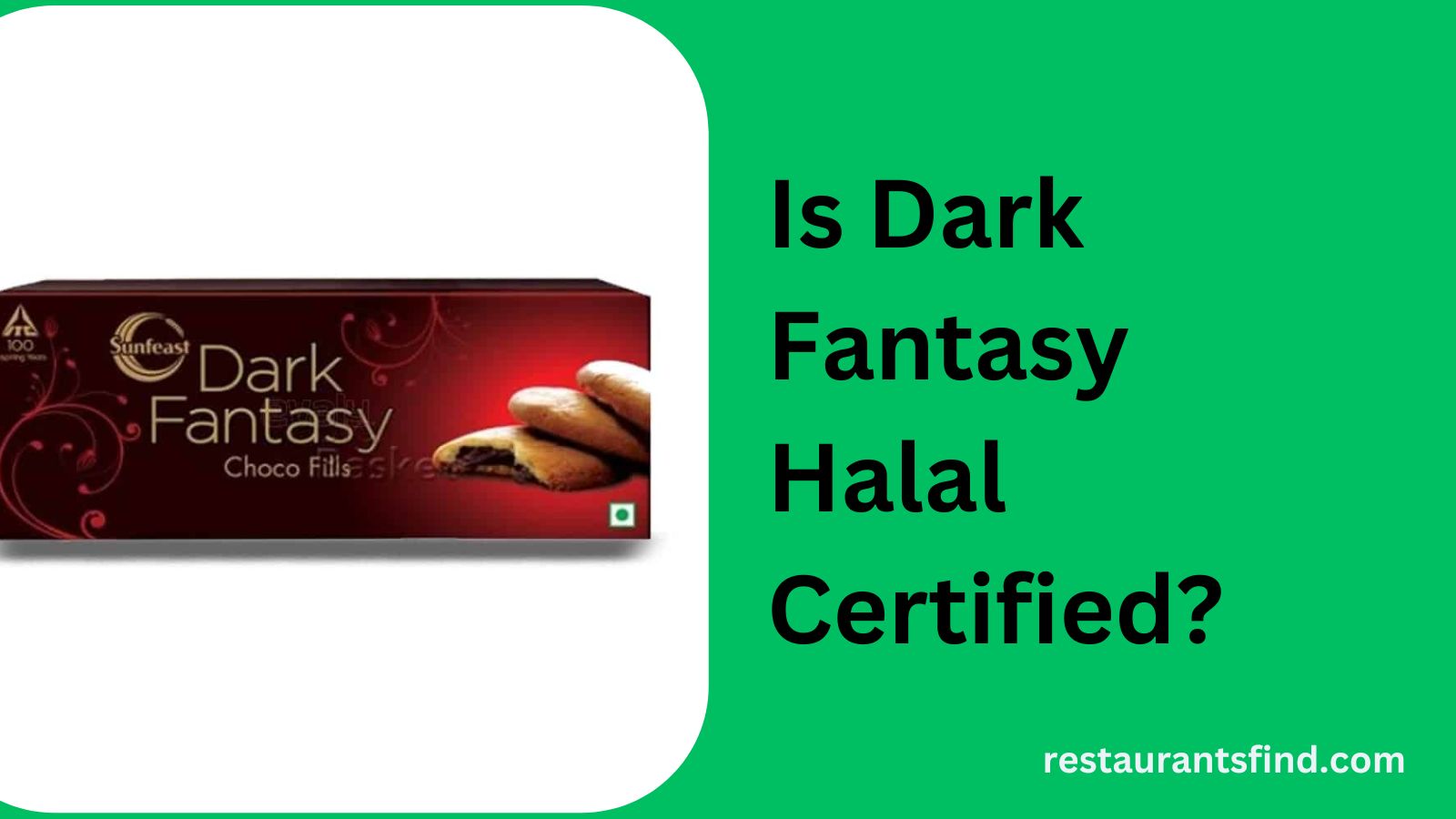In today’s world, where food preferences and dietary requirements are becoming more specific, one question that pops up for many snack lovers is: Is my favorite treat halal? If you’re someone who enjoys Dark Fantasy, the indulgent chocolate-filled biscuit by ITC, you may have wondered if it aligns with halal dietary guidelines. In this blog, we’ll take a closer look at whether Dark Fantasy is halal-certified and what you need to know before indulging in this treat.

Ingredients in Dark Fantasy: Any Cause for Concern?
Dark Fantasy by ITC is a well-loved treat, known for its rich chocolate filling encased in a crispy shell. A quick glance at the ingredients reveals:
- Wheat flour
- Sugar
- Vegetable oils
- Cocoa solids
- Milk solids
- Emulsifiers (Soy Lecithin)
- Artificial flavors
On the surface, none of these ingredients immediately raise red flags in terms of being non-halal. However, two key factors can cause concern for Muslims who follow a strict halal diet: emulsifiers and artificial flavors.
Emulsifiers
Some emulsifiers, like soy lecithin (used in Dark Fantasy), are derived from plant sources and are generally considered halal. However, there are some emulsifiers made from animal fat. Unless the source of the emulsifier is explicitly stated, it can be unclear whether it’s halal or not.
Artificial Flavors
Artificial flavors can sometimes contain alcohol as a solvent or other non-halal ingredients. In the case of Dark Fantasy, while no explicit mention of alcohol is made, it’s always a good practice to be cautious about unspecified artificial ingredients.
Is Dark Fantasy Halal Certified?
The crucial point in determining whether Dark Fantasy is halal lies in whether it holds an official halal certification. As of now, ITC Dark Fantasy does not have an official halal certification on their packaging or their website. So the answer to this question : Is Dark Fantasy Halal Certified? The short answer is: No, Dark Fantasy is not halal-certified.
Halal certification is a reliable way to confirm that the entire manufacturing process, from sourcing ingredients to final production, complies with halal standards. Since ITC has not made any public statements or provided documentation to indicate halal certification for Dark Fantasy, it leaves Muslim consumers in a gray area.
Community Opinions: What Do People Say?
Social media platforms, blogs, and forums are often full of discussions about whether popular snacks like Dark Fantasy are halal. Many consumers have voiced their uncertainty about its status due to the lack of halal certification.
Some users claim that since the ingredients list doesn’t contain any obvious non-halal substances, it should be permissible. However, others prefer to stick to products that are explicitly certified to avoid any doubt. This mixed response shows that without certification, opinions will vary widely.
Is Lotte Choco Pie Halal? Everything You Need to Know
What Are Your Alternatives?
If you’re looking for certified halal snacks, there are several options available. Here are some well-known brands that offer halal-certified biscuits and chocolate treats:
- Halal Munchies – Known for its range of halal-certified snacks, including biscuits and chocolates.
- Nestlé – Some Nestlé products, like KitKat (in certain countries), are halal-certified. Always check the packaging for certification.
- Oreo (Middle East) – Oreo biscuits in many Middle Eastern countries are halal-certified. Be sure to check local packaging.
- Bisk Farm – Offers a variety of biscuits, including some that are halal-certified in certain regions.
- Cocomo – A popular halal-certified chocolate-filled biscuit brand, especially in South Asia.
These brands cater specifically to Muslim consumers, ensuring that you can enjoy your treats without worrying about their halal status.
Conclusion
So, is Dark Fantasy halal? No, Dark Fantasy is not halal-certified. While the ingredients don’t explicitly list anything haram, the absence of a halal certification makes it unsuitable for those who follow a strict halal diet. If you follow a strict halal diet, it might be best to look for snacks that are officially certified. Alternatively, you can reach out to the manufacturer for clarification.
At the end of the day, making informed choices about the food you consume ensures peace of mind, and it’s always a good idea to do a little research before indulging in your favorite treats.


1 thought on “Is Dark Fantasy Halal? Unwrapping the Truth About Your Favorite Treat”